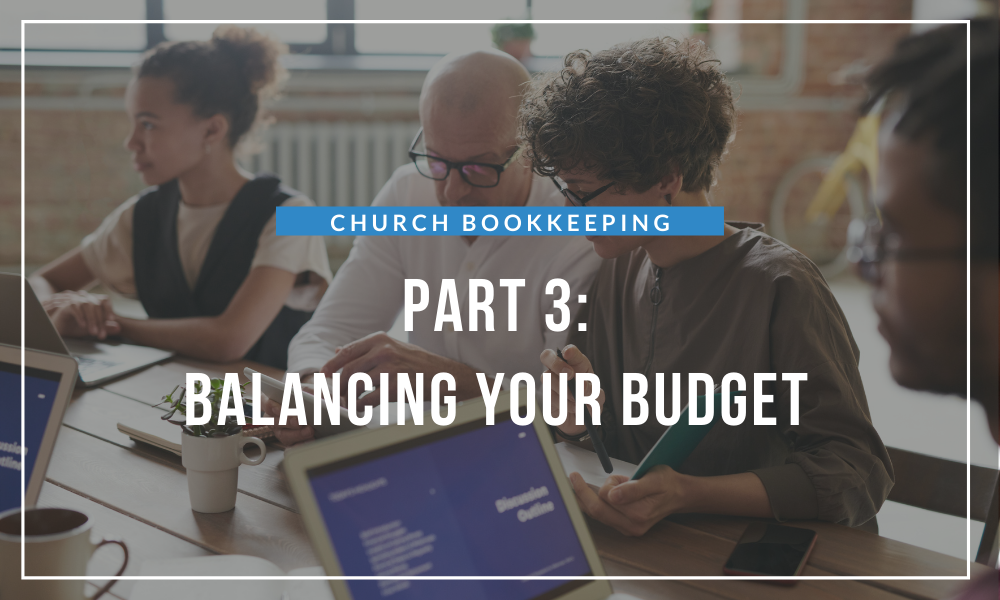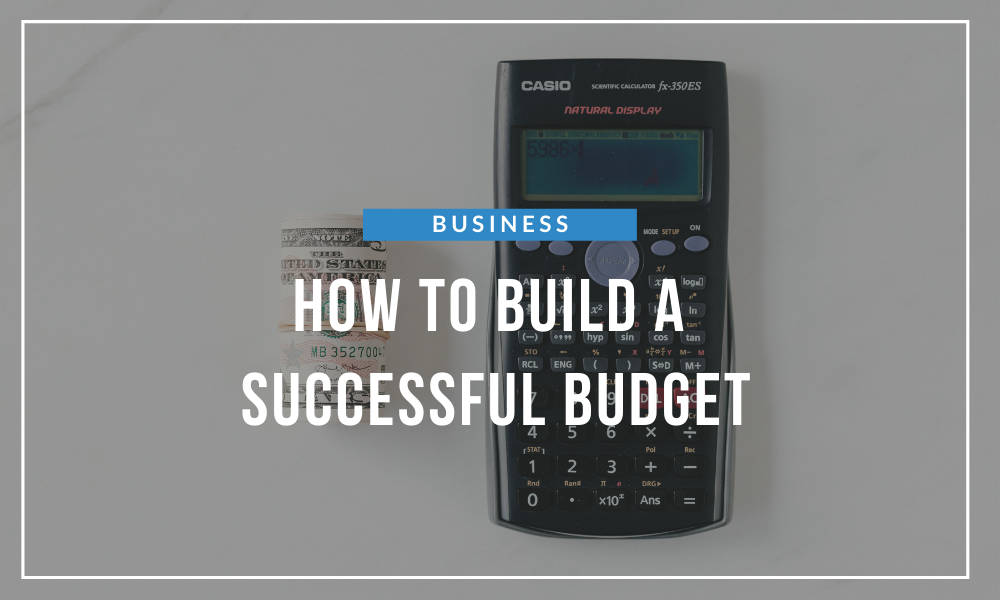
by Chris Williams | Nov 11, 2021 | Blog, Bookkeeping Best Practices, Leadership
In October, I attended two different accounting conferences back-to-back – the first industry events we’ve been able to attend in the last 18 months! Meeting, networking and learning from so many great industry partners and experts was quite invigorating. Importantly, I also left the conferences excited about the continuous evolution of our industry and the opportunities it creates for System Six to continue to grow. Here are the main takeaways from Thriveal’s Deeper Weekend and Scaling New Heights.
Relationships Matter
The currency of our industry is shifting. While transactional services still underpin everything we do, clients more and more expect and need value-add advisory services. Clean books will always be the foundation of quality accounting, but the rise of cloud technology has led to endless integration possibilities, making transaction management less cumbersome than in years prior. So what does this mean for bookkeepers? We’ve got to continue to build and lean into our relationships as agnostic, trustworthy advisors. We’ve got to continue to educate ourselves on all the problems our clients are facing – not just their accounting challenges – so we can provide advisory services beyond just finance. So for System Six, in the coming months and years, we’ll be working on finding new ways to deliver value to our clients, whether through deeper financial advisory capabilities, additional support for HR management, or even technology advisory. Ultimately, we hope to continue to deepen our relationships with customers so that we may best serve them and enable their success. Building this deeper foundation of meaningful relationships rather than transactional services is the future of our industry.
Ever-Expanding Toolbox
Innovation is the heartbeat of the tech world. In every industry, new services, programs, apps, and vendors emerge every quarter. At these conferences, I had the opportunity to hear firsthand about the latest initiatives, features, and products heading to market. Some will provide healthy competition for some of our favorite vendors like Bill.com and Gusto, who themselves continue to improve. At the same time, others are finding success in filling niche spaces in security or uncategorized transaction automation. We will keep tabs on several vendors as they develop and expand so that we can provide the best service to our clients.
Quickbooks is Reinvesting
While Quickbooks is still our go-to cloud-accounting software, they’ve gotten flack across the industry in the past few years. Whether from the launch of QB Live, a competitor to many bookkeepers, or because of less than satisfactory customer service, the ecosystem has been frustrated with them of late. Fortunately, they are focused on doing right. They are reinvesting in their accounting partner community by overhauling their customer service, reducing wait times, and providing robust training for firms. We look forward to continuing our partnership with Quickbooks and appreciate their efforts to better serve firms like System Six.
Great Industry Ecosystem
The business world often gets a bad wrap as having a cut-throat, competitive culture, but I was pleasantly surprised otherwise. Everyone I met was friendly, encouraging, and supportive. The atmosphere was full of camaraderie and different individuals championing one another. Rather than approaching the industry with a scarcity mindset, other firm owners recognize the endless number of potential customers and the wide variety of unique services in the market to differentiate firms. I left feeling immensely appreciative of “competitors” who treated System Six more like a partner, willing to share information, resources, and encouragement. Take heart; there are fabulous firm owners leading the charge into the next iteration of cloud accounting services.

by Chris Williams | Sep 8, 2021 | Blog, Bookkeeping Best Practices
If you’ve ever gone through the process of selling a house, you probably know about that in-between season that lies between living normally in your house and handing the keys over to the new owner. It’s a season of cleaning up and making necessary improvements so that when you eventually do put your house on the market, it’s being presented in its absolute best light.
The same is true when you’ve made the enormous decision to sell your business! Even if you are confident in its value, a season of catching up and cleaning up your financial operations is essential to getting the most value out of the sale of your company.
Of course, like haphazard cleaning and cheap improvements to your house before selling won’t add value to its sale, making last minute improvements in your business’ financial operations won’t pay out – in fact, the opposite may be true. Savvy buyers are on guard for unorganized, sloppy bookkeeping. If your books don’t add up, or there are expenses that can’t be categorized correctly, you’re going to lose value in the sale.
There’s also the matter of reputation to consider here. You’ve invested years into creating what your business is today. What do you want the sale of it to say about your company? What do you want it to say about you?
You could be seen by potential buyers as an “old-school” unprofessional, or you could be seen as someone whose confidence in the value of their business shows clearly in the way you pay attention to even the most minute detail in your business’ bookkeeping
The choices you make in this in-between season before selling will not only impact the value you get out of the sale, but will also affect your legacy.
We’ve honed in on three specific areas that should be top priorities as you get your business’ books cleaned up and ready for a sale.
Every dollar needs to be accounted for in as much detail as possible.
When you’re preparing to sell your company, there is a ton of information you will need to have ready to show potential buyers. These include your financial records, a minimum of three years worth of profit/loss statements, net income statements, tax returns…the list goes on.
It may seem obvious, perhaps, that all these numbers need to be properly balanced and accounted for. What may be less obvious is the value of breaking down these numbers in greater detail than you might assume necessary.
You may be used to using one Quickbooks entry for your company’s “expenses,” but breaking those expenses down into specific, detailed categories (such as regular salaries vs. overtime pay, differentiating travel and entertainment expenses from regular expenses, highlighting parts and labor, etc,) will give potential buyers a lot more confidence in the true profits and expenses of the business.
Identify and remove personal expenses you’ve been running through your business.
Sometimes business owners try to “add back” the value of the personal expenses that they’ve written off through the company, such as family health insurance or personal travel expenses. Problems arise, however, if you have insufficient data to prove to your buyer that these expenses were truly personal.
We recommend identifying and removing these personal expenses from your books, ideally 18 months to a couple of years before putting your business up for sale. This protects your reputation as being transparent and honest, and lessens unnecessary confusion when it’s time to show your statements to potential buyers.
Identify and stop occasional expenses that aren’t recurring.
In that same vein, identifying random, occasional expenses will go a long way in helping clean up your bookkeeping. Perhaps you paid a large, one time payment for a marketing campaign, or sank some money into updating your company’s website. These aren’t recurring expenses for your company, but it can be hard to prove that to potential buyers as they’re looking over your books. We recommend starting to identify and stop spending money in these one-off categories at least two years in advance of selling your business. This will increase your profitability, which will help you sell for a higher value!
Is the reward worth the extra effort?
It’s a simple yes. With clean books, you’ll be a more trusted and therefore desirable target for buyers.
But, don’t just spend time ahead of your sale simply cleaning up your books. The next buyer is likely going to come in and implement updated, efficient systems to the business’ financial operations when they take over. This saves them time and money and therefore increases the value of the business right from the start. They’ll make sure you’re using the latest accounting software, and leveraging good third party tools for efficient bill pay and payroll processing.
Why leave this work for the next buyer? While you are cleaning up your books, also take the time to modernize your financial operations, thereby saving you time and money and increasing the value of your business.
The value you gain will be more than worth the extra effort – and you don’t have to do it alone.
At System Six, we are here to help. Day in and day out, we are helping businesses manage their financial operations and bookkeeping efficiently and accurately. And we love helping organizations get to that point – nothing gives us more joy than sitting back with a client after a few years of hard work and seeing decreased stress and increased profitability as a result of improved bookkeeping.
Are you looking towards the future, and considering what you can be doing right now to get the most value out of your company when it comes time to sell? Consider letting us help you improve your bookkeeping and the overall efficiency of your financial operations.

by Chris Williams | Aug 26, 2021 | Blog
The decision to sell your business is a massive one. It will not only require practical time and energy but an emotional and financial investment. You will need to pay lawyers and other advisors, and it will demand time from your chief operators and directors. As you collectively navigate this significant transition, anxiety will heighten, and questions will fly. Many owners start down the path towards a sale, only to get cold feet and determine that “the time just wasn’t right.” This can be detrimental to the stability of the business, the team, and future sales. So before you begin the process of preparing your business to sell, pause and ask yourself these questions to make sure you’re truly ready to say goodbye.
1. How much of your personal fulfillment do you derive from your business?
Perhaps you built this business from the ground up, tooth and nail. Or maybe you purchased it in a fledgling phase and nurtured it to success. Whatever the path, you put in years of focused, dedicated energy and care into building a structure, team, and business that you are proud of, and rightfully so! It has probably become more than just your job; it is part of who you are. So how much of your self-worth, identity, and happiness comes from it? How much joy do you get from walking into work on Monday morning, solving complex problems around your conference table, or coming up with a unique solution for your clients? Would you miss the travel, the pace, or the challenge? Who are you when you aren’t at the helm? It’s essential to recognize this business’s role in your personal life – not just the time it takes but the sense of worth it brings you. If it plays a massive role in your personal life, and really defines you, actually handing it off at the end of a sales process may be a lot harder than you anticipate.
2. What will you do with your time?
Elite athletes call this “visualization.” They imagine step by step, moment by moment, the perfect swing of the bat or spin of the dive. Being able to picture something clearly in your mind helps bring it to fruition. It allows your brain to rehearse what it will think and feel when the behavior comes to pass. Can you imagine retirement? What will you do? Where will you go? What does your family imagine? How will you fill your weekdays? What will you do with the money? If these images are vague and incomplete, it might be a sign that – when push comes to shove – you won’t follow through with a sale because you don’t know what is coming next. We are creatures of habit, innately designed to prefer routine to change. Knowing exactly what you’ll do that first Monday morning when you don’t have to set the alarm is an important step to preparing your mind for a shif
3. What problem are you solving?
Sometimes a complete sale is not the solution. But to know this, you have to articulate your problem. Do you want more time with your family? Is the leadership responsibility bringing you too much stress? Is your industry growing rapidly, and you recognize you don’t have the skills (or desire) to scale? These problems can be solved in many ways through partial sales, staffing changes, or operational restructuring to alleviate your actual pain point while retaining your involvement in the things that still bring you life. Selling your business doesn’t have to be an all-or-nothing decision. But you need to know what type of sale/transaction you are looking for before you go down the path.
As modern accountants and bookkeepers, we are here to ensure your accounts are for whatever “next step” you envision for your business. But we aren’t only your outsourced finance team – we are also trusted advisors and partners in your success. If you know you’re nearing the time to sell your business, reach out to us. Of course, we can help you prepare your financial records to ensure you get the most value from what you have worked so hard to build, but we also can help you think through some of the non-financial considerations at play when selling your business. We’ve seen it before, done it before, and are here to help.

by Chris Williams | Oct 23, 2020 | Blog, Non-Profit
Welcome to the final part of our three part series on bookkeeping and finance specific to churches. This third part of the series covers budgeting. Just like I mentioned in part two, I recommend reading the previous parts (on Helpful Tools and Program Spending) of the series since this final edition of the series builds on what was previously covered.
In part three we will be discussing budgeting and the various aspects of the process to consider while walking your clients through building a budget.
Budgeting Philosophy
The biggest challenge to budgeting is making sure that the appropriate people are involved in the process. Usually the primary champion of the budgeting process is whoever is sitting in the board treasurer or church operations role. Unfortunately, this most often ends up as the only person that cares about having a budget.
It may seem simplistic, but it’s important to start with the basics: “What is a budget?” Throughout my years of helping with budgets, and even working on my own household budget, I have learned that a budget is a plan for how to spend money. With a church, that money belongs to the churchgoers who donated those funds. In a church, a budget is a plan for how to spend other people’s money and that plan should support the ministry goals and objectives of the church.
Who Should Make the Budget?
Since these ministry goals and objectives are often discussed and set by church leadership, a budget should support those goals. Because of this it is vitally important that other members of leadership contribute to, or assist with budgeting. In most cases, pastors and lay leaders are not financially minded so their natural inclination is to avoid the budgeting process altogether. In their minds that is the reason they hired or appointed an operations or finance director.
As outsourced bookkeepers and consultants, the goal here is to advise our church clients that the budget committee should consist of ministry leaders, operations staff, and ministers. During the process the question of “Does this budget support the ministry goals and objectives of our church?” should be at the forefront of everyone’s minds, and the committee consists of all the right people that can answer that question.
The Mechanics of a Balanced Budget
Now that all the right people are at the table, it’s okay for the operations and financially minded leaders to lead the process. The best place to start is with income.
Income for a church can be a challenge due to the following:
- How many church attenders are giving?
- Will those church attenders continue to give at the rate they are giving?
- If the church is growing, how much will the revenue grow?
- If the church is getting smaller, are the people leaving regular givers?
- Of the people leaving, how much are they giving?
- Is there a plan to encourage increased giving in the upcoming period?
In part two of this series some of the donor management and church management tools that I listed can help to answer these questions. Other questions are better answered by pastors and ministry leaders, which is why it’s important that they are involved in the process.
Once all these questions are answered it’s important that the revenue budget is set based on practical expectations and not on the amount that is desired. The revenue can be divided evenly across all twelve months of the year, or allocated differently to each month based on previous year giving trends. If using the latter method, make sure that the monthly cash flow can handle particular months where expenses may exceed revenue. This situation may arise since most expenses are the same month-to-month, but monthly revenue can fluctuate. Once revenue is determined, expenses naturally follow.
The first pass through expenses can be accomplished without looking at revenue, and based only on the needs of the church and ministries. It’s important that expenses are then compared to the overall projected revenue. If total expenses exceed total revenue for the year, that means the church likely can’t accomplish everything that it wants to that year. This is again why it is important to have a budget committee made up of ministry leaders and pastors because at this point, hard decisions will have to be made about where to reduce expenses. These decisions should be guided by the ministry goals of the church, and if expenses are cut in certain areas, it’s a collective decision instead of a financial director simply moving numbers around on a spreadsheet.
At the end of the process the difference between total expenses and total income ideally should be zero. If expenses exceed revenue, that means there will be an expected cash burn (disregarding any balance sheet considerations). If revenue exceeds expenses, there is the potential that the extra money can be put towards a reserve for future savings.
Bookkeeping to Serve the Church
As stated earlier, budgeting is important and because it is important, needs to involve many stakeholders. Since churches are made up of many people, many people should be involved. In our role as trusted advisors we can encourage the churches we are serving in this direction.
Since this wraps up the three part series on outsourced church bookkeeping, our hope is that we have helped to provide clarity on some of the potential pitfalls of serving churches. The intention is that this will help to increase the value that we are providing, and ensure the success of the churches and non-profit ministries we are serving.
If you are an outsourced bookkeeper looking for further ideas, or a church that is in need of outsourced bookkeeping, we are glad to serve, and we can be reached at hello@systemsix.com.

by Chris Williams | Oct 13, 2020 | Blog, Bookkeeping Best Practices, Leadership
As Benjamin Franklin once said, “By failing to prepare, you are preparing to fail.” So, let’s prepare now for your future success with a strong budget.
For business owners, having a budget for the New Year is an important part of financial preparation. But for some business owners, just the thought of having to prepare a budget makes them anxious. The idea of adding another item to your to-do list might actually push you over the edge, especially this year. Or maybe you just don’t know where to start. Either way, a budget is a critical step to your success, so reach out! System Six, your current bookkeeper or your CFO can help!
The budgeting process allows business owners to think about how much they will earn and how much they will spend in the following year. It can be as detailed or as summarized as you like. The goal is that a budget will ultimately help the business owner throughout the year determine if the business is on track financially through the use of budget versus actual reporting. So you’ll know month by month when and where to make expense changes or where you may be exceeding your revenue expectations.
Where Do I Start with a Budget?
Preparing a budget may sound like an impossible task. Keep in mind that this process can be as simple as you want it to be the first year and then revised and improved upon in subsequent years.
The most effective way to build your budget is to align your data with the accounts in your financial system (i.e., QBO, Xero, Sage, etc.) and ultimately to input the budget into your system for easy reporting next year. At System Six, we are here to work with our clients and other business owners to help them through this process.
Whether you have prepared a budget before or not, one of the best places to start is by reviewing financial statements for the current and prior two years, making notes on some key pieces of information.
- Do you notice any revenue trends? Are there certain months where you earn most of your revenue each year? Do you see a rather steady revenue increase each month?
- Are there any atypical income sources in those years that may not recur next year?
- Are your Cost of Goods typically a certain percentage of your revenue each month? Are there ever variations in certain months that need to be planned for?
- Are there any atypical expenses in those years that may not recur next year?
- Are there amounts you want categorized differently on your statements next year?
What’s the Point of a Budget?
Building your budget will vary some depending on your revenue model. However, in most cases, when determining your revenue budget, you will want to include realistic stretch goals. A budget needs to be achievable. There are other business growth documents you can use to evaluate and incentivize a sales team, for example, but a budget should be a realistic expectation of next year’s financial statements taking into account known external factors and changes. The expectation is that you will be able to run budget versus actual reports next year and be able to determine if your business is on track to your anticipated (budgeted) bottom line. If you are, great job! If not, you’ll be able to see where the business has gone astray and make real-time (monthly) adjustments to get back on course towards your initial plan.
How Detailed Should My Budget Be?
If this is your first time preparing a budget, our recommendation is to keep it simple! We don’t want you to feel like your budget is more trouble than it’s worth. If you are a Budgeting Pro, you can make your budget as detailed as you like. Either way, you will want to match your budget data to the Chart of Accounts inside your Financial System (i.e., QBO, Xero, etc).
You can enter your revenue to the top level called Revenue/Income or you can split it between your various sub-Revenue accounts. The same is true for all layers within your Chart of Accounts, including Cost of Goods and Expenses, being as detailed as you like or simply entering to the parent/summary/header accounts that you prefer. You can even choose to simply enter annual amounts for all accounts which will auto-split evenly across all 12 months of the year. Just a quick note that if you enter budget entries to the Summary accounts, and then next year actual expenses are entered to Sub-Accounts (more detailed), you will want to run Summarized Budget versus Actual reports in order to see the variances at the Summary level. But don’t worry, this is just fine; your budgeting efforts are still well worth the time! You may find this is all you need for several years.
At this step in the process, having reviewed both current year and prior year financial statements, it is up to you to determine next year’s annual budgeted revenue. An estimate is fine at this point based on what you know about your business. It is helpful to forecast where you think your revenue will be at the end of the current year in order to have a solid starting point for next year’s budget.
How Do I Determine Budgeted Revenue?
You may be wondering how you calculate more detailed budgeted revenue. This will differ depending on the type of business you operate.
Different Types of Businesses
- Subscription or Donor/Membership-Based organizations typically track their subscribers or donors/members by level or group and price. They know how many members they anticipate for next year and what revenue that equates to.
- Service or Project-Based organizations typically track their services by price. They anticipate a certain number of services for next year and what revenue that equates to.
- Inventory/Product sales organizations typically track their product sales by product. They anticipate a certain number of product sales for next year and what revenue that equates to.
These calculations are made with information pulled from a Point of Sale system or Membership database, which may or may not be directly integrated with the financial system.
More Complex Business Structures
What if your financial system is set up with even more detail, such as departments, locations or class structure? All of these layers can absolutely be taken into account when creating your budget. Essentially the process is the same; you will simply repeat the process for each of these layers. In the end, when the budget is entered into your financial system for each of those layers, the summarized version of your budget will “roll up” to your master budget. It is important to note that completing a budget process to this level of detail can be quite time consuming, especially if this is new to you or if you are taking on this challenge alone without any supporting departmental staff.
Special Revenue Considerations
As revenue is estimated for next year, it is important to include potential key business changes, such as new product lines/products or expanding business areas. Conversely, it’s also important to consider the discontinuation of any business lines/products or the closure of any business areas. Other key changes might include the impact of price increases, including not only the anticipated increase, but also any customer impact as a result of those increases (i.e., cancellations, etc.).
What’s Next?
Once you have this detailed annual budgeted revenue, the next step is to determine how to spread it out monthly for next year’s budget. If you have chosen not to calculate annual revenue in such detail, simply use the annual budgeted revenue for the business as a whole you determined above.
Monthly Revenue Modeling
Once you know what you are expecting for next year’s annual revenue, it’s important to know how to spread out that revenue each month. Depending on the type of business you operate, there are several options to choose from. Please note that if your revenue is consistent month to month, you can choose to enter your annual revenue, skipping this step altogether, allowing the system to allocate revenue evenly by month (simply dividing by 12).
Cyclical Revenue Modeling
Does your business generate most of its revenue during a specific month or quarter of the year? For example, is your business dependent on New Year’s resolutions (i.e., gym memberships, etc)? Or, is your business dependent on holiday sales (busiest from Oct-Dec)? If so, then your business would be considered cyclical, with more revenue being entered to specific months during the year. For a cyclical business, it is important to budget revenue next year by looking at the historical trends for those key months, being realistic about growth, and then allocating revenue in the other months similarly.
Incremental (or Percentage Growth) Revenue Modeling
Does your business typically grow a certain percentage each year or each month? If so, calculate the growth percentage and see if that applies consistently throughout the year or in certain quarters. Based on what you find, this percentage growth should be applied similarly to revenue amounts for next year.
Breakeven Revenue Modeling
Would you like to budget revenue based on the minimum amount needed to cover anticipated expenses for next year? This is called Breakeven Budgeting. You can apply revenue Cyclically or Incrementally, but by lower amounts or even reducing revenue from the current year. In this model, first budget expenses, budgeting revenue last, with the goal being a $0 Net Profit/Bottom Line. The purpose of this model allows business owners to know that if they do not exceed budgeted expenses and at least meet budgeted revenue, they will not lose money at year end.
Expense Modeling
The expense side of the budget model typically uses percentage growth for key accounts. Most often, business owners will review current and prior year financial statements to gauge expense levels and increases year over year to estimate next year’s budget. Key areas to consider include:
- Cost of Goods Sold: Since these are industry or even business specific, you’ll want to review these in depth to determine what to expect for next year by month.
- Payroll: You’ll want to consider both cost of living increases as well as any anticipated performance increases. Keep in mind that payroll accounts can be in various places within the Chart of Accounts, depending on your layout, including Costs of Goods Sold and Admin/G&A, and may also split out owner wages separately.
- Employee Benefits: Benefits can unexpectedly increase, sometimes quite a bit year over year, so it can be helpful to reach out to your broker to get an idea of your increase for next year. Be sure to include any new benefits you may be implementing next. And similar to Payroll, these costs may also be found in several places on the P&L, including Cost of Goods Sold and Admin/G&A, with owner benefits oftentimes split out separately.
- Utility Increases: Although often considered a “fixed expense”, utility companies do increase their rates and utility expenses can be a large expense on the books. So taking a look at prior year increases can help determine next year’s budgeted expense.
- Revenue-based taxes: Depending on your state, revenue-based taxes are typically percentage based. So for budget purposes, setting them as the same percentage (of next year’s estimated revenue) as current year is generally a safe bet, unless you expect major changes to your business model.
- Other expenses: As the business owner it is important to look at the other expenses on your books, determine what percentage increases are appropriate for next year or if there is another methodology that makes more sense for estimating next year’s budgeted amount. You know your business best and are in the best position to make those estimates.
So Where Do YOU Want to Start?
Having reviewed more about what you already knew or learned something new, where do you want to start with this important step towards your 2022 success?
How Can We Help?
If you are interested in some help with this project, please click on this link and connect with us at System Six. It will take you to a short list of questionnaires to help us determine how we can best serve you in this process.





